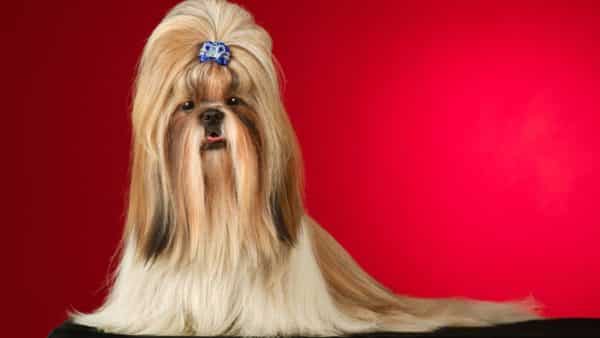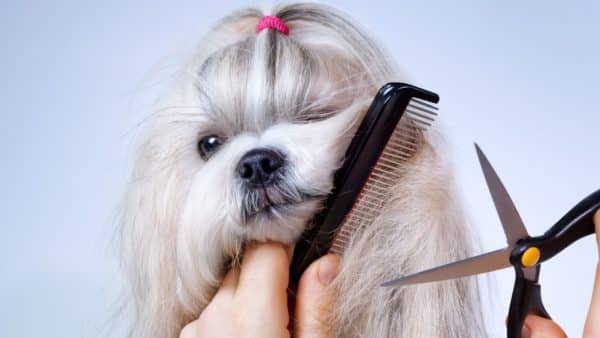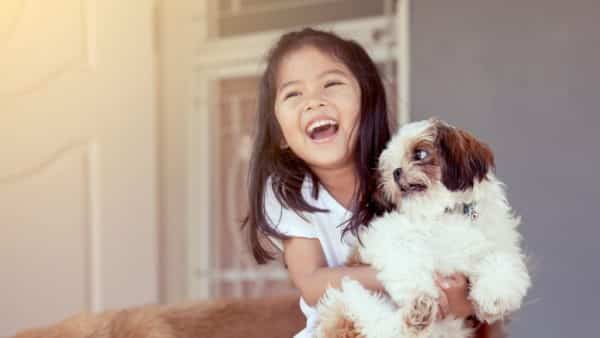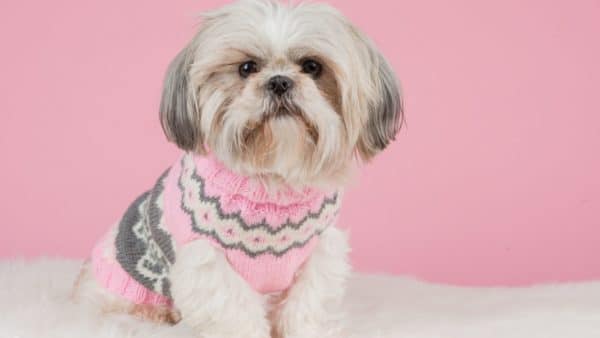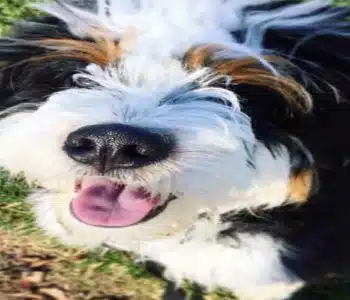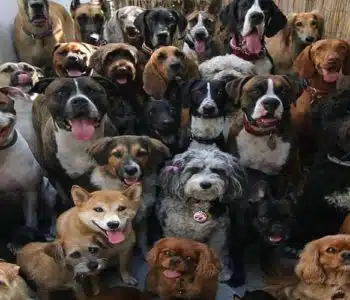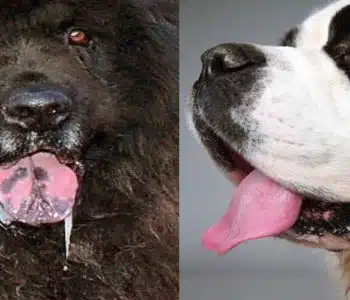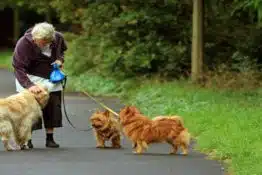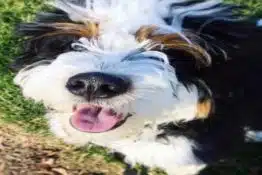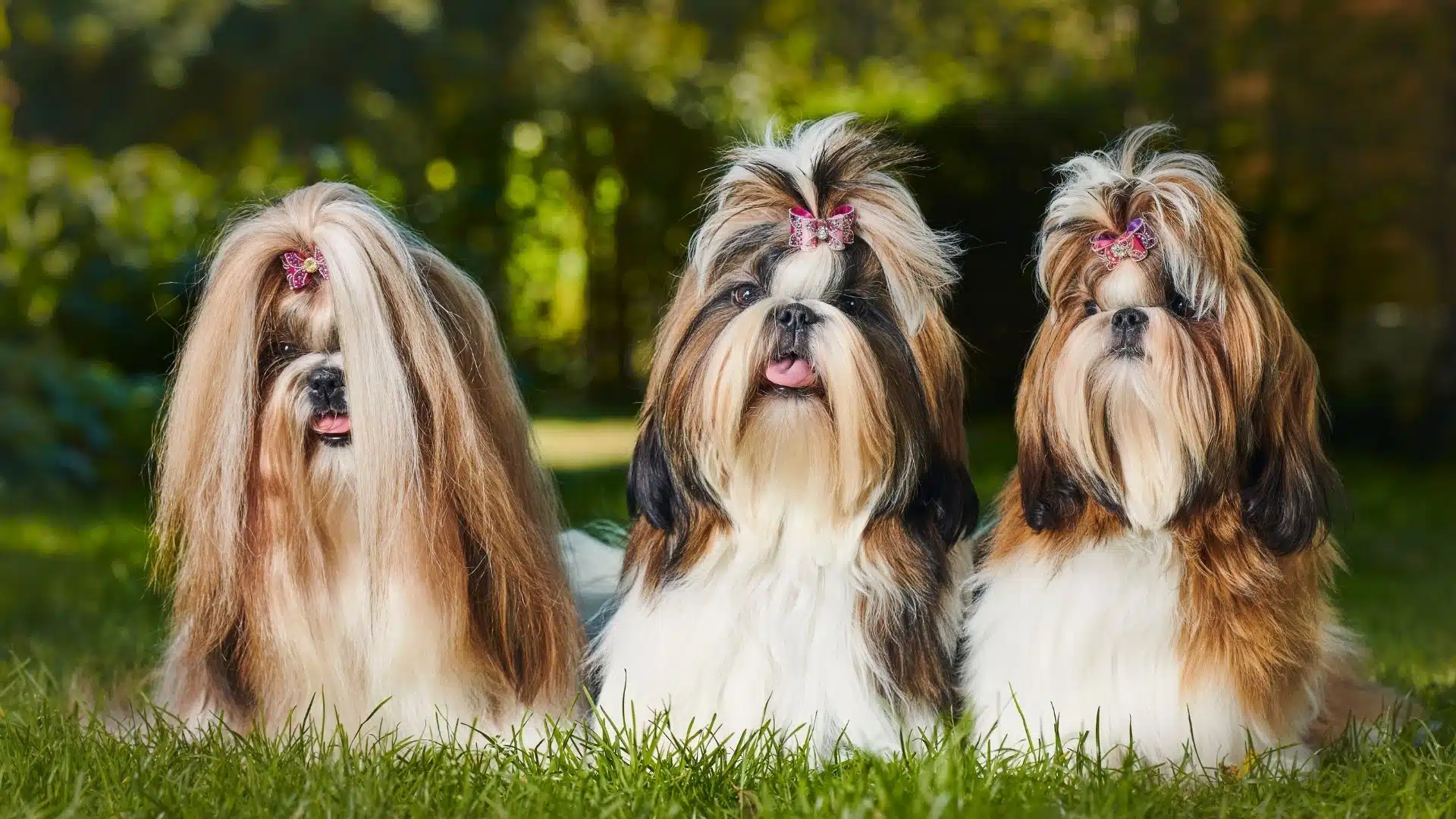
Shih Tzu Dog Breed Guide: Facts, Health and Care
Introducing the Shih Tzu Dog Breed
Ranked 20th out of 197 dog breeds recognized by the American Kennel Club, the Shih Tzu appeared more than 1000 years ago in Tibet. This complete guide will review the breed’s history, personality, and lifestyle requirements. Please read the article to learn what makes the so-called “chrysanthemum-faced” dog such a popular and fashionable accessory for celebrities like Beyonce, Mariah Carey, Nicole Richie, and Colin Farell.
| Breed Group | Toy Group |
| Temperament | Affectionate, playful, outgoing |
| Life Span | 10-18 years |
| Weight | 9-16 Ibs |
| Height | 9-10.5 inches |
| Colors | Black, blue, silver, brindle, white, red, gold with or without markings |
| Origin | Tibet |
Best Supplements for Shih Tzu Dog Breed
Choosing the best supplements for a Shih Tzu involves considering their unique health needs. Omega-3 fatty acids, such as fish oil, can contribute to a healthy coat and skin. Additionally, a supplement with glucosamine and chondroitin may support joint health, as small breeds like Shih Tzus can be prone to joint issues. A multivitamin designed for dogs can help fill any nutritional gaps in their diet.

- Joint health support for dogs: cosequin, the #1 veterinarian recommended retail joint health supplem
- Omega-3 fatty acids: each soft chew also contains omega-3 fatty acids to help support skin and coat
- Manufactured in the united states with globally sourced ingredients: cosequin is a high-quality, dog
- From the #1 veterinarian recommended supplement company*: nutramax laboratories veterinary sciences
- Backed by science: nutramax laboratories veterinary sciences supplements are veterinarian formulated

- This natural fish oil additive supplement works to support your pal’s skin, coat, hips and joints, heart and immune system.
- The premium salmon oil is rich with omega-3 and -6 fatty acids from EPA and DHA to promote soft skin, a shiny coat and good overall health.
- May also help support proper hip, joint, heart and immune function.
- Makes a yummy alternative to capsules or soft chew supplements—simply add to your pet’s favorite meal.
- Great for small, medium and large breed dogs or cats.

- Your sidekick deserves a shiny coat and healthy skin she can feel proud of and show off.
- A therapeutic blend of organic horsetail, dandelion, spirulina and bladderwrack help maintain hair shafts and follicles to promote healthy skin and hair.
- Give your gorgeous girl the capsule whole or mix it into her food.
- PetAlive supplements are made from lab-tested, raw ingredients with no added fillers, gluten, artificial colors, flavors or preservatives.
- Made in FDA-registered, cGMP (current Good Manufacturing Practice) compliant facilities.
Shih Tzu History
The first recorded document of a Shih Tzu is over 1000 years old, but it is believed that its ancestry goes even further back. It is a popular misconception that Shih Tzus comes from China. The truth is that Shih Tzu’s native country is China’s western neighbor – Tibet. The confusion arises from the fact that Tibetan noblemen used to send Chinese royalty, Shih Tzus, as gifts. Members of the Ming Dynasty traditionally kept Shih Tzu as pets. Later on, the Chinese mixed them with Pugs and Pekingese, which eventually resulted in the modern Shih Tzu.
Translated from Mandarin, the term “Shih Tzu” means Lion Dog. The name was derived from legends associating the Buddhist God of Learning with a miniature-sized lion dog that could transform into a full-sized lion if necessary.
The Communist Revolution severely impacted the breed and almost wiped out its existence. Namely, at the beginning of the 20th century, there were only 14 Shih Tzus left in the world – seven males and seven females. These 14 dogs were used as a foundation to rebuild the breed. Over time, the breed’s popularity and population number increased. Today, Shih Tzus are among the most popular toy breeds globally. Fascinated by their exotic charm, many celebrities have decided to get a Shih Tzu.
Shih Tzu Appearance
This “lion dog” is true to its name; the fluffy coat gives a mane-like appearance, and the overall gait and posture reflect power and dignity – all of that in a tiny package. Shih Tzu’s body is slightly elongated. They are tall, sturdy, and muscular. The head is rounded, the eyes prominent, and the muzzle short. The bite closes in an undershot. The fluffy tail is curled up and over the back.
Size
Both male and female Shih Tzus are 9-10.5 inches tall (22.8-26.6 centimeters) and weigh about 9-16 pounds (4-7.2 kilograms).
Coat and Color
Shih Tzus have lustrous, luxurious, and long double-coat that casually flow and, if allowed to grow – reach the ground. The coat can be straight or slightly wavy. Show dogs should have their head hair tied up. Shih Tzus come in all color varieties of the canine rainbow. Dark pigmentation in the area around the eyes and nose is favorable.
Shih Tzu Grooming and Maintenance
Shih Tzus are popularly known as “chrysanthemum-faced dogs” because their facial hair tends to grow in all possible directions. Even the shortest clip does not prevent the hair from growing and covering the eyes in no time. Well, it is not just the facial hair that overgrows. Shih Tzus needs monthly haircuts, and the “puppy trim” is the only hairstyle that might last for longer than a month.
Shih Tzus need to be brushed daily or at least 4-5 times per week. However, the topknot and the mustache must be combed daily. Bathing is recommended every three to four weeks. The good news is that Shih Tzus are not prone to proliferous shedding.
The eyes should be cleaned with a damp cloth daily. The ears should be checked and cleaned weekly, and the nails should be trimmed monthly. The anal glands should be expressed as needed.
Shih Tzu Temperament and Personality
Wherever there are Shih Tzus, there must be mischief and shenanigans. However, there are also giggles and laughter. Shih Tzus are funny, playful, affectionate, and outgoing. They like to behave clownishly if that makes you laugh and spend more time with them. The Shih Tzu is a highly people-oriented dog that thrives on human affection, attention, and companionship. It will adjust to anything as long you are together.
Shih Tzus are outgoing and friendly with people, other dogs, and even smaller pets. They are also fond of children and do not mind being bothered by them. However, if the children receive more attention, the Shih Tzu is likely to become green with envy.
Sometimes Shih Tzus can be strong-willed or even stubborn. They are also brilliant and can be manipulative. Their “what is in it for me” attitude is sweet and funny. Limited by its mouth’s anatomy, the Shih Tzu is not very fond of destructive chewing, but it is notorious for its digging tendencies. Plus, despite its size, it can be quite vocal.
Training your Shih Tzu
Shih Tzus are sweet-natured, but they will exhibit stubbornness unless handled with persistence and a firm hand. They are food-motivated dogs, but if they start manipulating the handler for food, not only will they become obese, but they will never really learn anything other than getting what they want.
Shih Tzus are tough to housebreak. Like in most small dogs, the bladder develops slowly, which means more time will pass before the Shih Tzu can hold it.
Raising a well-mannered Shih Tzu is impossible without early socialization and puppy classes. It goes without saying that class training techniques should be based on positive reinforcement.
Shih Tzu Exercise Requirements and Energy Level
Glamour is among the first things that come to mind when someone says Shih Tzu. However, underneath those luxurious and flowing coats, there is a sporty, muscular body. Shih Tzus excels in dog sport competitions, especially agility. In fact, in 2014, a Shih Tzu won a championship and an agility title, thus becoming a double winner. For Shih Tzus kept as family dogs, a daily walk in the park or a playtime session in the backyard is enough to satisfy its training requirements.
However, there are specific considerations regarding Shih-Tzus and exercise. As short-faced dogs, they cannot pant properly and are at higher risk of heatstroke. Therefore, they should not be outside when it is too hot or humid. Secondly, it is advisable to use a Y-shaped harness instead of a regular collar because the regular collar will pressure the windpipe and impair breathing.
Common Shih Tzu Health Issues
Shih Tzus definitely knows the trick for longevity – their average lifespan is between 10 and 18 years. However, just like any other breed, they are predisposed to certain conditions.
Shih Tzu’s eyelids do not close properly, which leaves the eyes exposed and prone to irritations. Common eye issues in this breed include corneal dryness, inflammation, cataracts, progressive retinal atrophy, juvenile cataracts, and retinal detachment.
Some orthopedic issues, like patellar luxation and hip dysplasia, are frequently reported among members of this breed. Finally, Shih Tzus are prone to developing allergies – mostly environmental (pollen, grass) and food-related.
Health Concerns
- Kidney and liver diseases
- Knee problems
- Eye conditions
- Allergies
Recommended Health Tests from the National Breed Club
- No recommended health tests.
Read the Official Breed Club Health Statement.
Diet and Nutrition Needs: Feeding your Shih Tzu
When choosing a Shih Tzu’s best diet, several factors are worth considering – high metabolic rate, brachycephalic status, long and silky coat, and proneness to allergies. The high metabolic rate is best addressed by giving frequent, high-calorie meals.
The brachycephalic anatomy issue is solved by feeding adequately sized and shaped kibbles. To maintain the long and silky coat, the food must contain adequate levels of vitamin A and omega fatty acids. Finally, allergic Shih Tzus should be fed specific food formulas designed for allergic dogs.
In general, Shih Tzus love eating, and if allowed to eat as much as they want, they become obese. Bearing in mind the incidence of knee and hip issues in the breed, obesity must be prevented through strict diet and exercise regimens.
Tips for Adopting and Raising a Shih Tzu
A purebred Shih Tzu costs between $500 and $1600, but the average price is around $850. The expenses of parenting a Shih Tzu for the first year are roughly $2500. After the first year, the annual costs will be around $1180 or $98 per month. In total, the average cost of owning a Cavalier is estimated to be $ 17,900.
As short-faced dogs, Shih Tzus face many breathing challenges. To prevent aggravation of breathing problems and improve their quality of life, it is advisable to protect their respiratory systems. Some simple rules, like not smoking, not using harsh chemicals and cleaning products, and not being exposed to pollen and freshly cut grass, can be beneficial in the long run.
Shih Tzu FAQs
Q: Are Shih Tzus easy to potty train?
A: Sadly, potty training is something many Shih Tzus struggle with. Their small and slow-developing bladders prevent them from holding it for long periods of time, which makes the potty training process rather challenging.
Q: Do Shih Tzus get attached to one person?
A: Shih Tzus are loyal and devoted family dogs. However, they are overly attached and overly affectionate with one family member. It is safe to say that the Shih Tzu is a “one-person dog”.
Q: Are Shih Tzu jealous dogs?
A: Yes, Shih Tzus prefers being an only child. They can learn to get along with both children and other pets, but as long as they are your favorite.
Q: Is Shih Tzu high-maintenance?
A: Yes, Shih Tzus are high-maintenance, both in terms of grooming and attention needs. However, their love and affection are worthy of the maintenance efforts.
Official Resources: Breed Clubs, Rescues & Helpful Links
- Official Breed Club: Shih Tzu Club of America
- Rescue A Corgi: Rescue Committee of the Shih Tzu of America
- Official AKC Profile: Shih Tzu Breed Information
- Breed Standard: Official Standard for the Shih Tzu
- Find a Puppy – AKC Marketplace: Shih Tzu AKC PuppyFinder
Recommended Products for Shih Tzus
- Magic Pee Pads
- Dog Ramp & Travel Ramp
- Cozy Calming Bed for Dogs
Similar Dog Breeds
- Tibetan Spaniel
- Tibetan Terrier
- Havanese
Related Groups & Characteristics
80% of Dogs Develop Arthritis or Joint Pain by 7 Years old – Here’s How to Protect Them
Most of us train our dogs when they are puppies to jump up on furniture. We think it’s harmless (and easier than always lifting them), but for dogs, couches and beds are very high compared to the size of their bodies.
Every time they jump it compresses their back and applies enormous force to their joints.
It’s no wonder that an incredible 80% of dogs experience arthritis or joint pain by only 7 years old.
Luckily, there is a vet-recommended solution.
It’s the PawRamp by Alpha Paw. An adjustable ramp that allows dogs to safely get on and off couches and beds. PawRamp makes joining you in bed or on the couch effortless and fun.
As a bonus, you can use code SAVE35 to get $35 off the PawRamp today.

